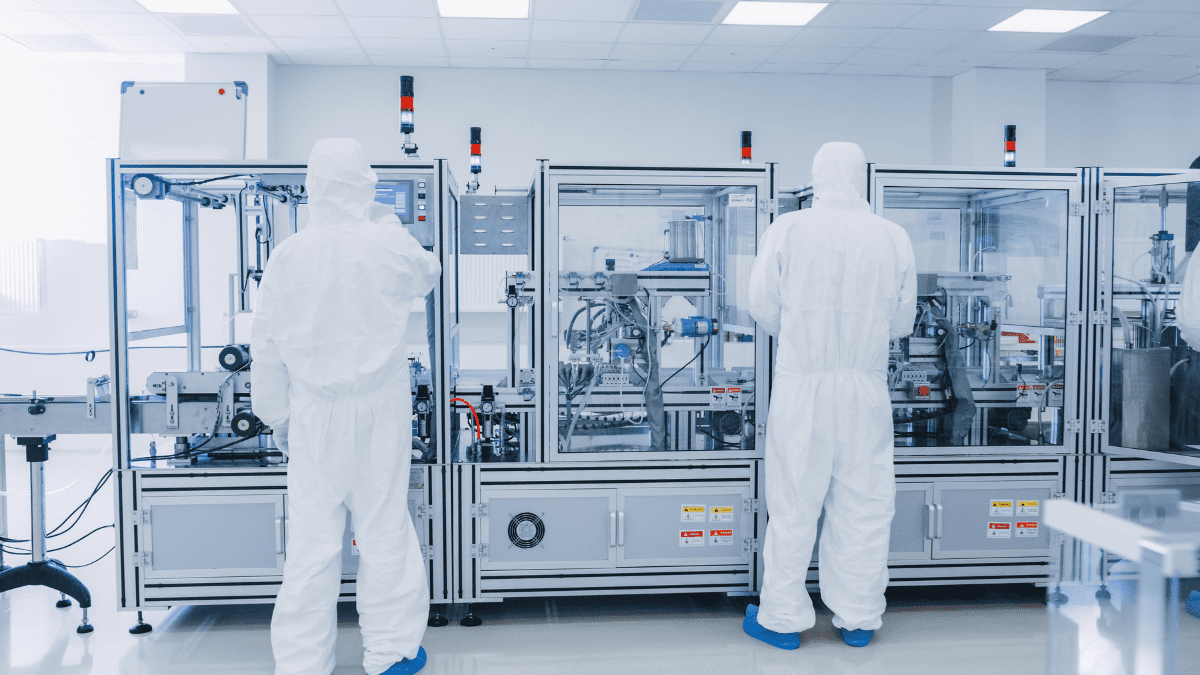Manufacturing has always been a resilient industry with the willpower to adapt to change over time and the determination and investment backing to modify processes after careful evaluation.
However, when COVID-19 struck, everything changed.
For manufacturers everywhere, supply and sourcing of materials became a very real and very big issue.
This then, mixed with a steep and quick drop in demand, worker unavailability, factory lockdowns, transportation disruption, and more, soon thrust manufacturers into a flee or fight situation.
Fortunately for most manufacturing companies, they were able to truly show their agility and ability to mobilise rapidly, building supply chain resilience that protected business now and in the future.
This supply chain resilience allowed manufacturers to work with UK suppliers in more creative ways while maintaining tight control on costs – ultimately managing their investments while minimising costly disruptions.
Resilient measures firms demonstrated during these times included:
- Mitigating risks through diversifying supply networks
- Investing regionally
- Re-optimising inventory, and
- Investing in specific technologies designed to offset additional labour costs.
A Toyota approach to COVID-19
When the pandemic struck and plants and industry started to close, Toyota decided to suspend all vehicle and engine transmission production in Europe to restrict people’s movement, helping to reduce the spread of the virus, avoid further supply chain disruption, and subsequently falling sales.
However, Toyota continued to supply parts through their resilient supply chain to ensure vital servicing continued.
The firm also looked to the future as they kept staff at their factories to help prepare for the launch of new models. I.e., those processes and projects that were deemed essential to a smooth restart where the plants’ future activity was maintained with necessary staff.
They developed new approaches to invest in maintenance activities, equipment upgrades, increasing inventories, and future project preparation. Committing to developing cutting-edge technology and investing millions in artificial intelligence and robots that go beyond car manufacturing to helping people in everyday life.
Designing more flexible factories through automation
As we now look at restoring operations and building robust processes to protect against a future crisis, automation is at the forefront of many businesses’ minds.
In fact, a quarter of manufacturers are now fast-tracking automation and reviewing their current processes to stem staff shortages, develop resilience and build agility.
For this to happen, we must rearrange layouts, reconfigure machines, encourage workers to maintain social distancing, implement sanitisation stations, introduce appropriate PPE, etc. All while maintaining the same level of factory output, quality, and standards.
Ideally, manufacturing spaces must be redesigned for efficiency and safety, i.e., reducing the required footprint to support social distancing.
New layouts might seem additional `wasted space` but not necessarily, as businesses think to the future and how you could devote this space to new production lines, new product development, and with the right automation, less human involvement.
Of course, all of this does affect recruitment and staff – but positively!
Process automation can supplement labour capacity. Using it as a way to manage worker shortages and minimise potential business losses.
This, in turn, helps production teams manage the reduced workload while also preventing close contact between employees.
Introducing automation into work processes can also elevate workers. Empowering them to learn new skills and move away from the everyday mundane tasks.
For example, warehousing could receive automation interventions that see the introduction of storage and retrieval systems, intelligent sorting, picking, and packing, inventory inspection, and more.
It also allows for decision-making to be made at required levels, making production much more efficient, especially where there’s no time to wait for direction from headquarters.
Allowing for faster decision making through new applications avoids errors, ensures quality, improves productivity, and provides end-to-end traceability.
Manufacturing during a pandemic has allowed businesses to re-evaluate operations to ensure a safe working environment, strengthen redundancy and disaster recovery plans, and further understand the total cost base within defined roles and outline responsibilities for each set task.
Moving into the future
Automation is set to increase by 50% as the manufacturing industry reduces worker contact by automating repetitive tasks with machines monitored remotely, where possible.
COVID-19 has shown us that we need to embrace automation at a much faster pace, making it part of the new normal, making manufacturing smarter and more connected than ever before.
Implementing advanced technologies that offer greater connectivity, advanced analytics, increase production efficiency, and product customisations will all help to improve your speed to market, service effectiveness, and even new business product development.
The COVID-19 pandemic proved just how resilient the manufacturing industry is. It is an industry that is constantly evolving and adapting to today’s challenges.
The good news is the team at Innomech are experts in designing, developing, and building bespoke manufacturing automation processes that support business investment, adding strength and resilience to your current operations.
Make now the time to future proof your processes through automation and get in touch.




